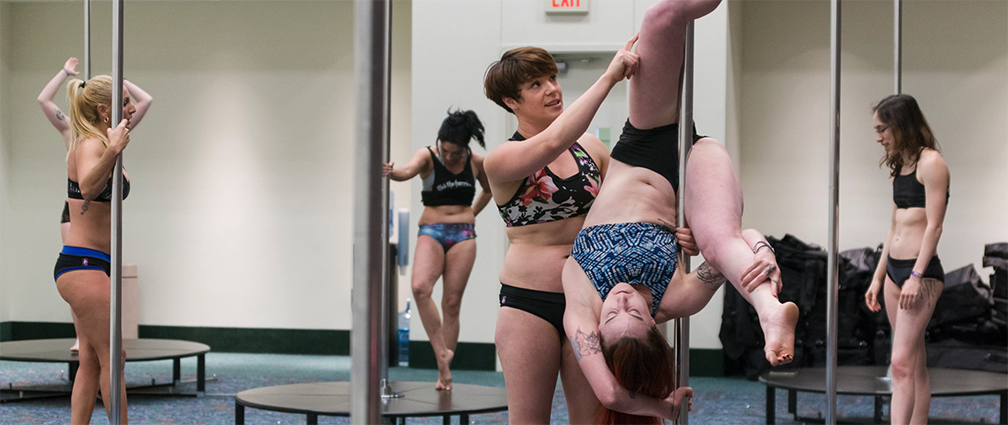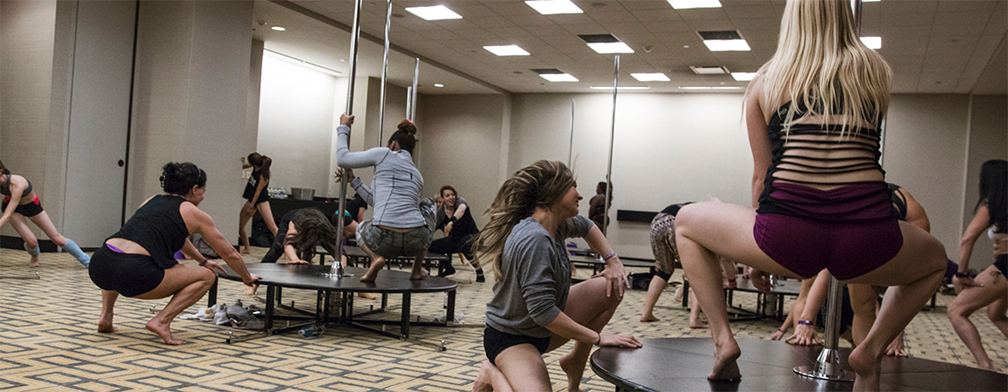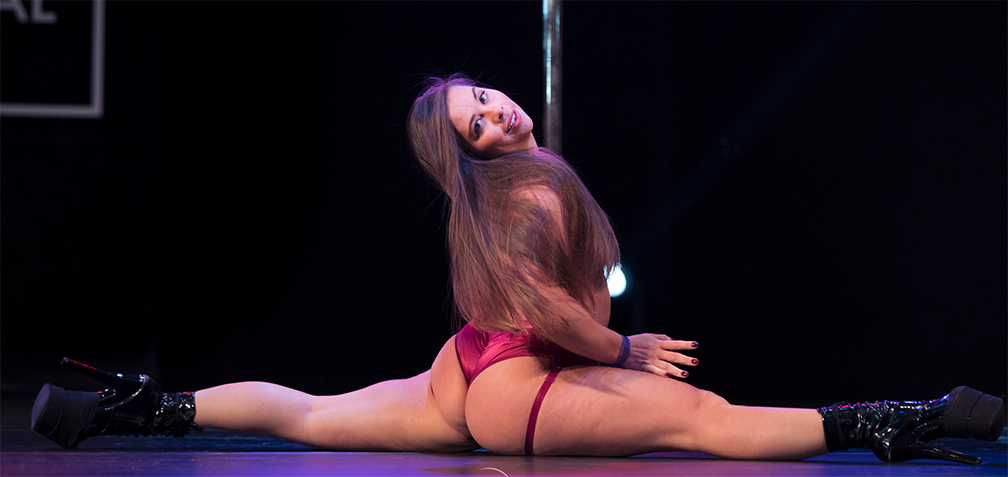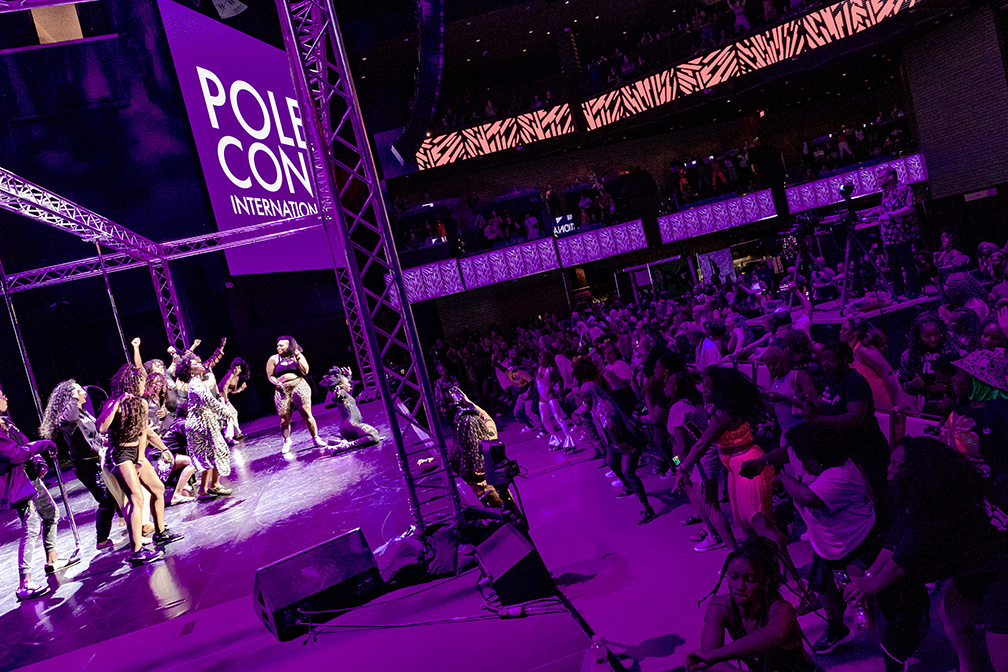Historically PoleCon has held workshops that were labeled: Beginner or All Levels Intermediate (basic climbing…

What makes a “good” pole dance teacher?
I asked this a few weeks ago via social media and many people had some great ideas!
Here are the top three.
❤️They have patience with their students❤️
Patience is so important! Everyone learns at different speeds and in different ways.
Sometimes as teachers in our rush to share knowledge with our students we can get impatient.
Maybe we are concerned that we won’t get hired again if we can’t help someone achieve “the thing” quickly enough.
Maybe we feel that this reflects on our ego as being a “good” teacher. Or maybe we just had a bad day.
📚Story time! I took a private with a pole star once that I was *super* excited about. I thought a private could help me become a better dancer because they are a *beautiful* mover.
I’m the type of student that often needs to “marinate” first so I wasn’t expecting to “get” everything they might show me. I just wanted the opportunity to learn from them. 🤗
I was trying to listen to the teacher and trying to make my body do what they asked but I couldn’t. And the more I couldn’t, the more they got visibly exasperated which made me get more anxious and do less and less of what they wanted. 😬
❤️ They understand how the move *works* not just how their body doing the move *works*❤️
Unfortunately, many teachers only teach from their body’s point of reference.
Some teachers can spot movement mismatches and give awesome and supportive feedback, and some can’t (yet).
📚Story time! I have a huge disconnect between my body and brain. I had no movement background prior to pole and because of my motorcycle accident and spending 20 + years in the corporate world, everything about making pole *work* for my body has been a struggle.
I worked with a pole coach for several years who always tried to get me to do combos that worked for their body. When I couldn’t, the feedback was always to “work harder,” “do some conditioning,” “get your spouse to be your accountability buddy.” It was never, “let’s diagnose why this isn’t working because maybe it’s not a work harder issue.” 😞 I always felt defeated leaving our sessions.
❤️ They create saf(er) physical spaces ❤️
Creating a completely “safe space” physically in pole (or any movement) is not possible. I’ve done a move hundreds of times and slipped unexpectedly—just last week!
Some things a teacher can do to promote safer spaces is:
👉Normalize not doing a move.
👉Normalize using a crash mat (some studios use these all the time and some may have them available).
👉Normalize asking for a spot.
‼️This is not an exhaustive list‼️
📚story time! When I first started getting into inverted moves, I worked with a pole coach who would not spot people. I don’t know if they didn’t know how, or they didn’t want to touch people, but they also didn’t like crash mats. 😬 They gave the impression of “being tough” and expected people to “just do it.” This made me feel very ashamed of being scared to do certain moves. 😞
❤️How can you as a teacher support your students? ❤️
Education plays a HUGE part in this (there are so many great resources in our industry now!!) but so does experience.
Listen to students who have different bodies and experiences than yours so you can keep learning and finding new ways to help someone. Encourage your students to give you feedback! While sometimes it can be hard to receive feedback, it can also be so worth it.
The more you teach (and pay attention with an open mind) the more you will learn from your students and the more options you’ll have to help them progress.
Finally, recognize when something is beyond your “scope of practice” or what you can safely teach and refer people to other professionals. This might be for issues that address nutrition, mental health, injuries, or other things that you are not an expert in.
❓ what other things make someone a “good” teacher in your experience?
Latest posts by Colleen (see all)
- Updating Workshop Levels at PoleCon (2025 and Beyond) - July 19, 2024
- PoleCon Exhibitor Spotlight: Flaaluhs - July 5, 2024
- Teacher Tip: How to improve your verbal cues - June 28, 2024


